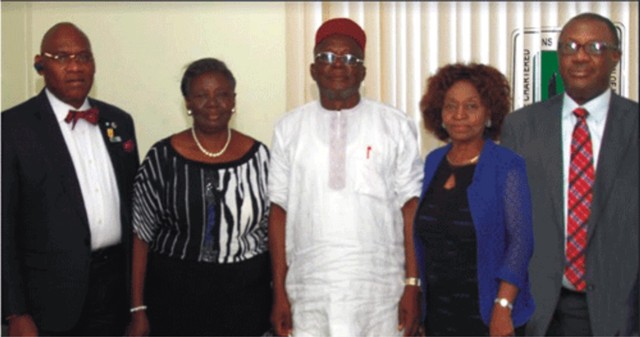Business
No More FOREX For Textiles, Garments Import -CBN

Textiles and garments imports have joined the FOREX restriction list of the Central Bank of Nigeria, the Governor, Mr Godwin Emefiele, announced in Abuja, yesterday.
Emefiele made the announcement during a meeting with textile industry stakeholders and added that the policy would take effect immediately.
Nigeria spends an estimated $4billion on imported textiles yearly.
Emefiele said that the restriction would rejuvenate the textile industry in Nigeria and ensure that the needed growth was actualised.
“Accordingly, all FOREX dealers in Nigeria are to desist from granting any importer of textile materials access to forex in the Nigerian Foreign Exchange market.
“In addition, we shall adopt a range of other strategies that will make it difficult for recalcitrant smugglers to operate banking business in Nigeria.
“The details of those strategies will be unfolded in due course,” the governor said.
On the issue of smuggling, he said it would be dealt with seriously to discourage importation of textiles and force sellers of textile and garments to buy from Nigerian producers.
“You know the CBN does not carry guns, arms or have to be at the border posts but we know what we will do to make it difficult for those smugglers to bring in those things into Nigeria and we will unfold those to you.
“So when we make it difficult for them to smuggle those things into the country, it opens the market for you so that those who would have gone to buy those things will be forced to come to you.
“That is one economic solution that I see and since the government itself has already signed an executive order, that will compel everyone to flow in your direction.”
As part of CBN’s intervention for the industry, Emefiele said the bank would support the importation of cotton lint for use in textile factories, with a caveat that such importers shall begin sourcing all their cotton needs locally beginning from 2020.
He added that as part of its Anchor Borrowers Programme, the CBN would support local growers of cotton to enable them to meet the needs of the textile industry in Nigeria.
He also said that the bank would support efforts to source high yield cotton seedlings to ensure the yields from Nigeria’s cotton farmers met global benchmarks.
Emefiele also assured the stakeholders that the bank would provide financial support to textile manufacturers with the provision of funds at single digit rate to refit, retool and upgrade their factories.
This, he said, was for them to be able to produce high quality textile materials for local and export market.
The governor also assured the stakeholders that regarding provision of stable electricity, the CBN would support the creation of textile production centres in certain designated areas where access to electricity would be guaranteed.
“In 2016, the CBN began discussions with the Kano and Kaduna States government to establish textile industrial areas in a bid to guarantee stable electricity in those industrial areas.
“We would intensify efforts with these governments and others that may show keen interest to see to the quick actualisation of such programmes.
“We believe that these measures will discourage smuggling, resuscitate this critical industry, and support your efforts at creating jobs for Nigerians.”
Emefiele decried the moribund Nigerian textile industry, adding that in the 1970s and early 1980s, Nigeria was home to Africa’s largest textile industry, with over 180 textile mills in operation, which employed close to over 450,000 people.
Business
KALCCIMA PROMISES KALABARI ECONOMIC GROWTH, INAUGURATES NEW EXECUTIVES

Business
NCDMB Begins Nigerian Content Research, Innovation and Technology Challenge

Business
Ikuru Town Issues Start-Up Grants, Packs To Skill Acquisition Graduands

-

 Sports5 days ago
Sports5 days agoAFCON ’25: Osimhen Not Worried By Yekini Comparison, Pressure
-

 Politics5 days ago
Politics5 days agoYou Have No Power To Drop Me, Ekiti PDP Candidate Tells INEC
-

 Sports5 days ago
Sports5 days agoRemo Stars set for Ikenne return
-

 Sports5 days ago
Sports5 days agoOgoni Nation Cup : Coach Praise Players In spite 2-0 Loss
-

 Sports5 days ago
Sports5 days agoSoname Calls For NPFL referees demotion
-

 Sports5 days ago
Sports5 days agoTackling age falsification among athletes In Nigeria
-

 Sports5 days ago
Sports5 days agoChelsea Set To Part Ways With Maresca?
-

 Politics5 days ago
Politics5 days agoObi Joins ADC, Advocates Unity, Competent Leadership For Nigeria

